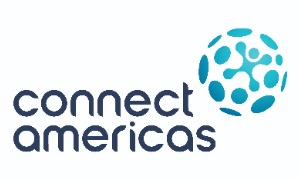The European Union’s Deforestation Regulation (EUDR) is a significant legislative measure aimed at combating deforestation and promoting sustainable land use. This comprehensive guide will delve into the key aspects of EUDR, its implementation phases, and its implications for businesses, particularly small and medium-sized enterprises (SMEs).
Introduction to EUDR
The EUDR is part of the European Green Deal, which seeks to address climate change and environmental degradation through a series of ambitious policy reforms. The primary objective of EUDR is to ensure that products placed on the EU market do not contribute to deforestation and forest degradation. By doing so, the EU aims to reduce its environmental footprint and promote sustainable supply chains.
Implementation Phases
EUDR implementation is divided into several phases, each with specific requirements and objectives aimed at ensuring a smooth transition and effective enforcement of the regulation.
Initial Phase
The initial phase focuses on establishing the regulatory framework and setting up the necessary infrastructure for monitoring and enforcement. During this phase, the EU will:
- Develop Guidelines: The European Commission will develop detailed guidelines to help businesses understand and comply with EUDR requirements. These guidelines will cover various aspects, including due diligence procedures, reporting obligations, and verification processes.
- Set Up Monitoring Systems: The EU will establish monitoring systems to track deforestation and forest degradation. These systems will use satellite imagery, data analytics, and other technologies to provide real-time information on land use changes.
- Engage Stakeholders: The EU will engage with stakeholders, including businesses, civil society organizations, and governments, to raise awareness about EUDR and gather feedback on its implementation.
Compliance Phase
The compliance phase will introduce specific obligations for businesses that place products on the EU market. These obligations include:
- Due Diligence: Businesses must conduct due diligence to ensure that their products do not contribute to deforestation or forest degradation. This involves assessing the risk of deforestation in their supply chains and taking appropriate measures to mitigate these risks.
- Reporting: Businesses must report on their due diligence activities and provide information on the origin of their products. This information will be submitted to the European Commission through an electronic database.
- Verification: The EU will conduct verification checks to ensure that businesses comply with EUDR requirements. This may involve on-site inspections, audits, and reviews of documentation.
Products Covered by EUDR
EUDR applies to a wide range of products that are associated with deforestation and forest degradation. These products include:
- Timber and Wood Products: The regulation covers all types of timber and wood products, including furniture, paper, and construction materials. Businesses must ensure that these products are sourced from legal and sustainable sources.
- Palm Oil: Palm oil is a major driver of deforestation, particularly in tropical regions. EUDR requires businesses to ensure that palm oil used in their products is sustainably sourced and does not contribute to deforestation.
- Soy: Soy production is linked to deforestation in several regions, including South America. EUDR mandates that businesses verify the sustainability of their soy supply chains.
- Cattle: The expansion of cattle ranching is a significant cause of deforestation, especially in the Amazon rainforest. EUDR requires businesses to ensure that beef and leather products are sourced from deforestation-free supply chains.
- Coffee and Cocoa: The cultivation of coffee and cocoa can lead to deforestation if not managed sustainably. EUDR obliges businesses to verify the sustainability of their coffee and cocoa supply chains.
Due Diligence and Reporting Obligations
The due diligence and reporting obligations under EUDR are designed to ensure transparency and accountability in the supply chains of products placed on the EU market. These obligations include:
Due Diligence
Businesses must implement robust due diligence procedures to assess and mitigate the risk of deforestation in their supply chains. Key steps in the due diligence process include:
- Risk Assessment: Businesses must assess the risk of deforestation associated with their products. This involves analyzing the origin of the products, the practices of suppliers, and the environmental impact of production processes.
- Risk Mitigation: If a risk of deforestation is identified, businesses must take appropriate measures to mitigate this risk. This may involve sourcing from certified suppliers, implementing sustainable production practices, or engaging in reforestation projects.
- Documentation and Record-Keeping: Businesses must maintain detailed records of their due diligence activities, including risk assessments, mitigation measures, and supplier information. These records must be made available to the European Commission upon request.
Reporting
Businesses must report on their due diligence activities and provide information on the origin of their products. Key reporting requirements include:
- Annual Reports: Businesses must submit annual reports to the European Commission, detailing their due diligence activities and the steps taken to ensure compliance with EUDR.
- Product Information: Reports must include information on the origin of the products, the practices of suppliers, and any certification or verification obtained.
- Transparency: Businesses are encouraged to make their reports publicly available to enhance transparency and build consumer trust.
Verification and Enforcement
The EU will conduct verification checks to ensure that businesses comply with EUDR requirements. Key aspects of the verification and enforcement process include:
- On-Site Inspections: The EU may conduct on-site inspections of businesses to verify compliance with EUDR. These inspections may involve reviewing documentation, interviewing staff, and assessing production practices.
- Audits: The EU may conduct audits of businesses’ due diligence procedures and records to ensure that they meet EUDR standards.
- Penalties: Businesses that fail to comply with EUDR may face penalties, including fines, product recalls, and restrictions on market access. The severity of the penalties will depend on the nature and extent of the non-compliance.
Implications for SMEs
Small and medium-sized enterprises (SMEs) must ensure compliance with EUDR regulations if they place products on the EU market. The implications for SMEs include:
- Compliance Requirements: SMEs must implement due diligence procedures and reporting systems to ensure that their products do not contribute to deforestation. This may involve investing in new technologies, training staff, and engaging with suppliers.
- Financial Impact: Compliance with EUDR may involve additional costs for SMEs, including the cost of certification, verification, and reporting. Businesses must budget for these costs and consider their impact on pricing and profitability.
- Market Opportunities: EUDR also presents opportunities for SMEs that produce sustainable products. By meeting EU standards, these businesses can gain a competitive advantage and access new markets within the EU.
- Support and Resources: SMEs can leverage available resources, such as the European Commission’s guidance documents and training materials, to navigate the complexities of EUDR compliance. Trade promotion organizations and industry associations can also provide valuable support.
Conclusion
The European Union’s Deforestation Regulation (EUDR) represents a significant step towards promoting sustainable land use and combating deforestation. By understanding and complying with EUDR regulations, businesses can contribute to global efforts to protect forests while also positioning themselves for success in an increasingly environmentally conscious market. SMEs, in particular, must stay informed and proactive to navigate the challenges and opportunities presented by EUDR.
For more information, you can find the webinar video at the following link.



Follow Us